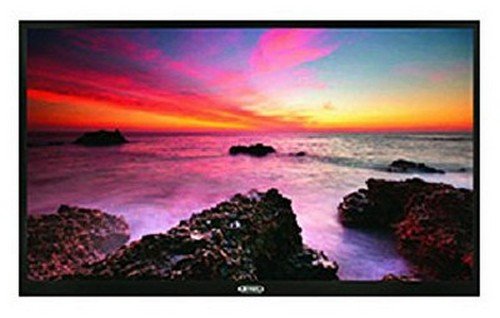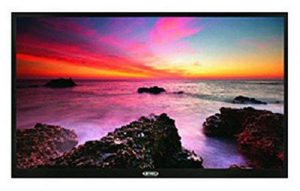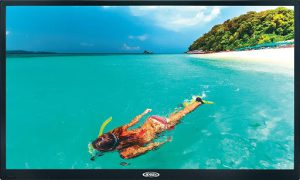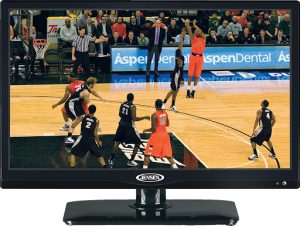
While it’s great to get out on the road and away from it all in your RV, there are times when you may want a TV. Frequent or full-time RVers may want one to stay up on their favorite shows, or to keep abreast of the news. You may want to watch local channels to get weather information. You may just want to have a movie night. Whatever the reason, there are seven things you should know before putting a TV in your RV.

1) Not All TVs Are Created Equal
You can’t just take your TV out of your house, stick in your RV, and be done. A TV for RV is designed to stand up to the bumping and jostling of life on the road. There are companies – like Jensen RV TV – that make RV flatscreen TVs and other TVs for RVs. They’re made to withstand the vibration and jostling, they’re more able to handle variations in temperature and humidity, and many of them have anti-glare screens that work better in sunny motorhomes during the day.

2) 12v TV for RV
A 12v RV TV can be very convenient, especially if you have a smaller motorhome. It’s important to remember to purchase a TV that can run on the kind of power you have available. This Jensen TV for RV is a great example of a 12v model to run in your vehicle.
3) Mounting your TV
Mounting your TV securely is important for a few reasons. You want to make sure everyone can see it when you’re all relaxed and watching television. You also want to make sure it doesn’t fall over while you’re driving. RV TV stands and RV TV straps can keep your RV flat-screen TV safe, or you can purchase brackets to keep it fastened to the wall. A flip-down TV for RV is another idea – it saves space and is out of the way when you’re not using it.
4) Connecting to Cable
If you want to make sure you get cable channels, check to see that the campgrounds where you’re staying offer RV cable TV. Many parks offer hookups and you can have access to lots of channels that way.
5) Connecting to Local Channels
If you want to get local stations, you’ll need an RV TV antenna. You can get a DTV reception map from the FCC to figure out which stations are nearby and in what direction, so you know where to point your antenna.
If you’re doing a lot of switching between cable and local channels, you may want to look into an RV TV switch box to help keep everything organized as well.
6) Subscription Services
If you really want to be able to watch TV at anytime, you may want to subscribe to a satellite TV service. You can then watch TV from almost anywhere. You’ll also need a dome antenna – if you get one that works while your RV is in motion, your passengers can even watch while you’re on the road.

7) Other RV Entertainment
Live TV isn’t your only option when it comes to TV RVs. An RV TV DVD player is also a great idea. Kids can watch their favorite movies on disc anytime this way, and you don’t have to set up the cable or antenna. You may find this is all you need for a TV in your RV.
If you take all these things into consideration beforehand, you can be sure to end up with the best TV for your RV.
This post may contain affiliate links.
